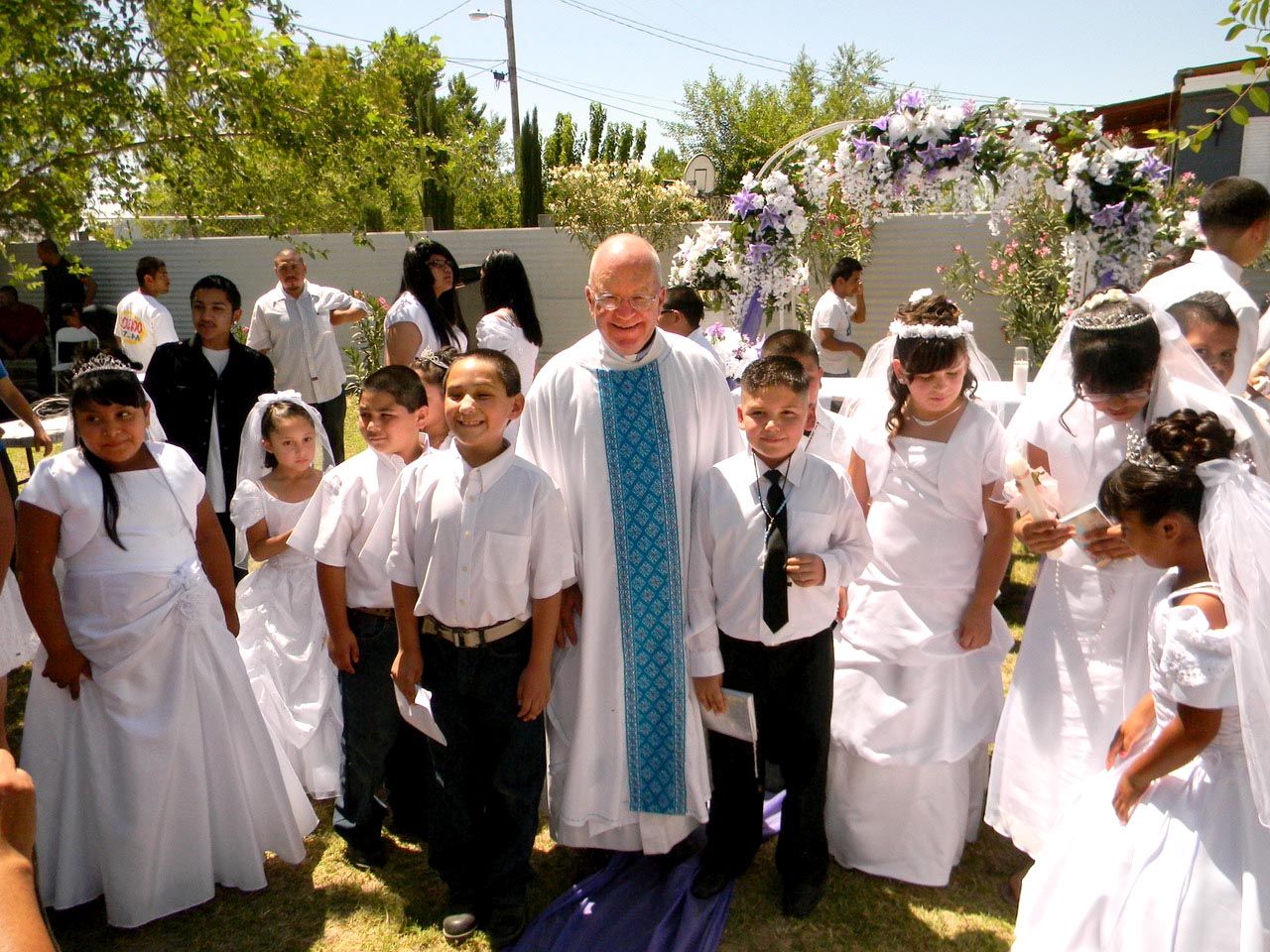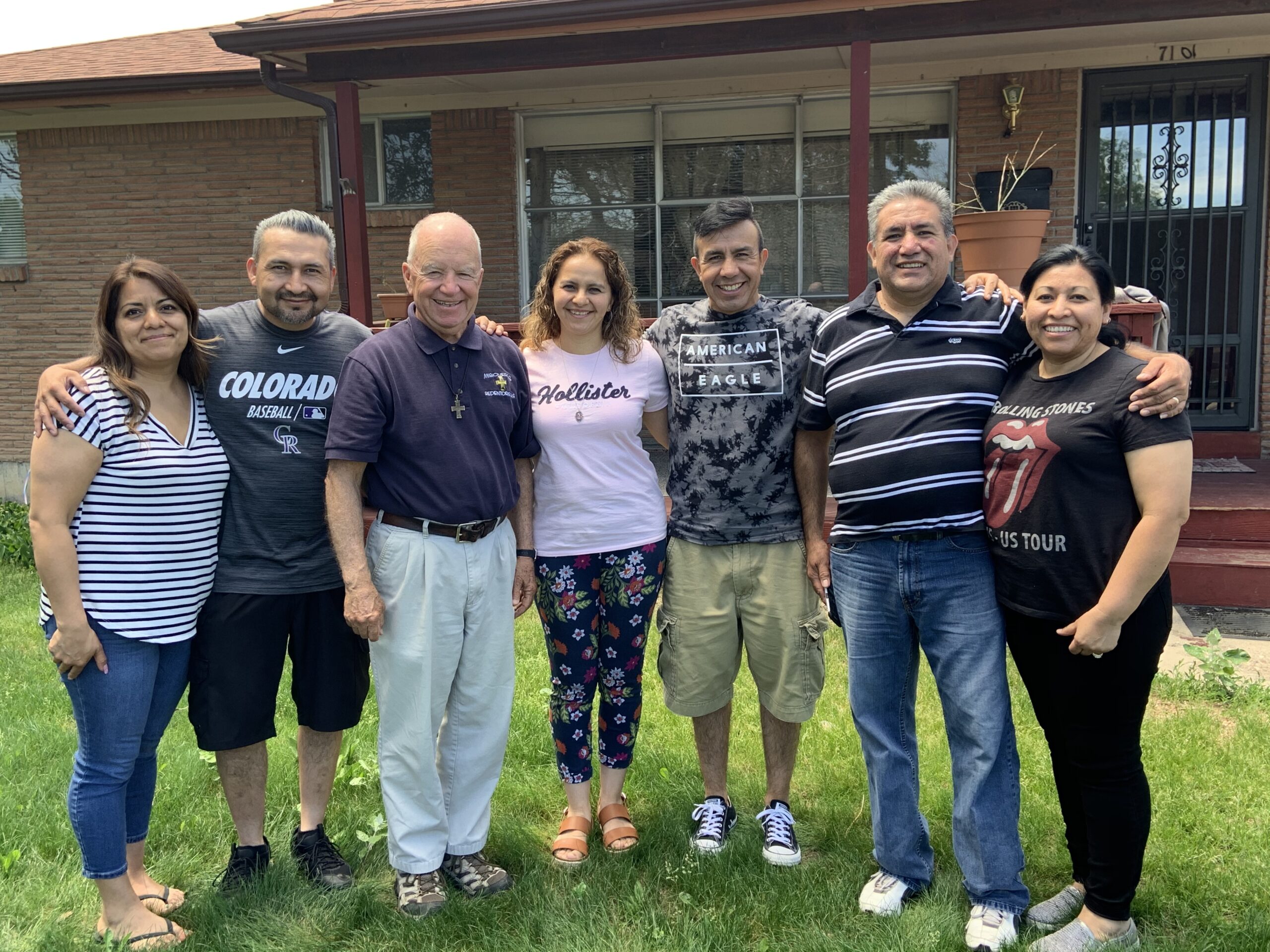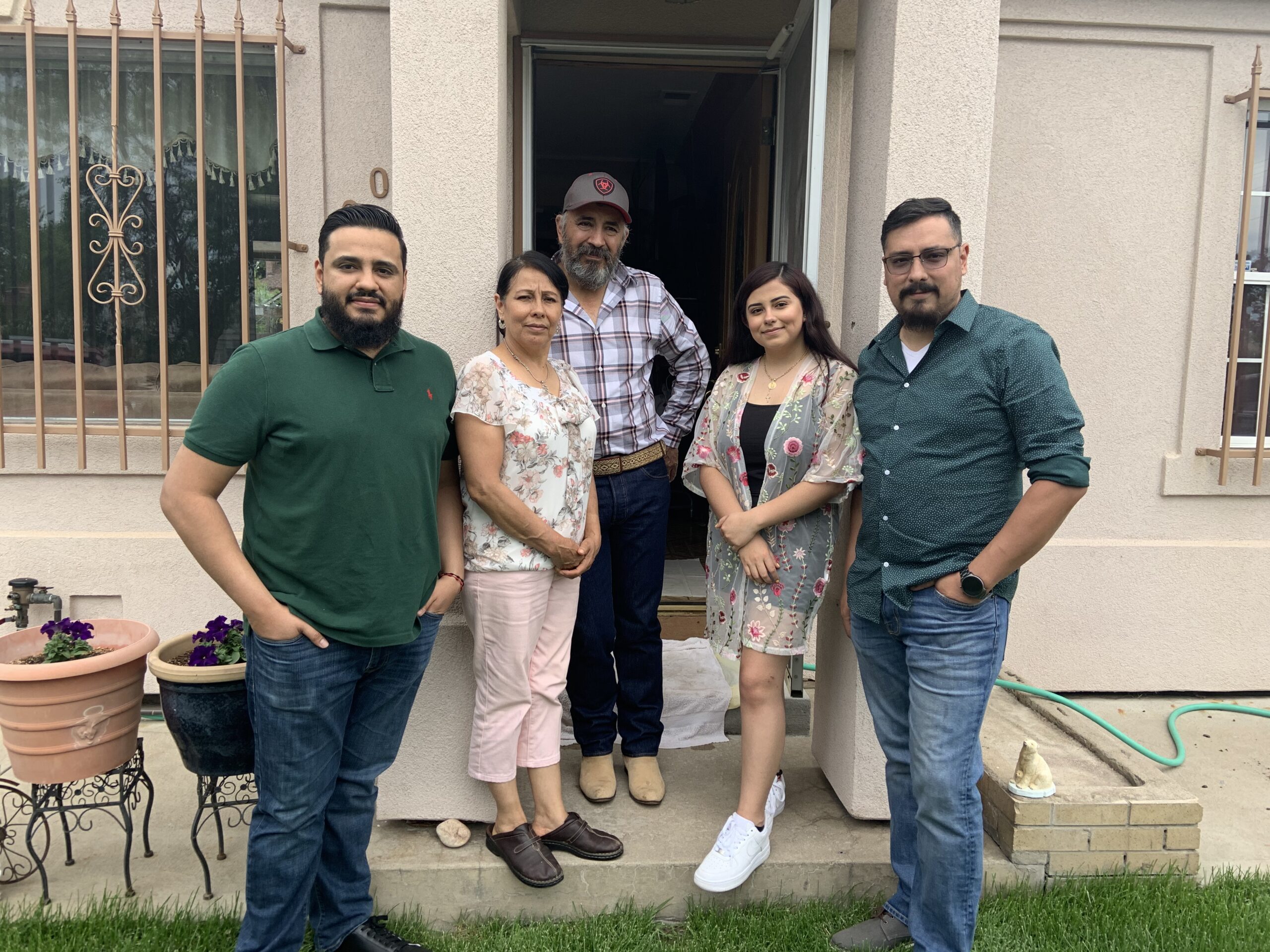Eucharist today: Sacraments of Initiation / Sacramentos de Iniciación
The sacraments of Initiation
In my first ten years as an associate pastor, it was customary for a priest to interview a family before a child would be baptized. The interview usually took about ten minutes to get the information needed for the baptismal record of the child and then we spent about twenty minutes talking with the people about their faith journey. The interview concluded with an explanation of the responsibility of the parents to teach their child how to pray and have a relationship with God. A date for the baptism would be confirmed with the couple. There were no classes beyond that.
In the 1970’s there were religious education programs for children from first to twelfth grade. In second grade children prepared for First Communion and Confirmation took place in seventh or eighth grade. The Confirmation instruction was part of the regular curriculum of the religious education program. Then in the 1980’s we saw a drop off in participation of children in religious education except for the years when they would receive a sacrament. Many parishes began requiring more catechesis before the sacraments to make up for lack of continuing education. At that time, I was in favor of expanding requirements for sacramental reception.
By the year 2000, I began questioning sacramental programs of longer duration and obligations that were difficult for young parents, especially for the poor. As I began working more and more with Hispanic migrants and immigrants, I worked with people whose faith is shown popular religious devotion rather than in religious education. I recognized a more joyful faith in the lives of the poor than in youth trained in parish catechetical programs.
During the summer, from 2000 to 2010, I offered sacramental program preparing youth for First Communion and Confirmation, and I recognized that there was much more enthusiasm shown by the youth of those programs than in the programs of the parish where I worked during the year. Our parish programs ran from September to May, with a full year of classes for First Communion and two years for Confirmation. I became an advocate for programs of shorter duration, with a bit more emphasis on relationship with Jesus than catechetics.
Some critics of our programs ask, “What do you want, quality or quantity?” Yet, quality is not found time, but in timeliness. The moment of grace is different for distinct communities and situations. I love Pope John Paul’s admonition to the church at the Latin American Episcopal Conference in 1983. He said that we need a “new evangelization. New in its ardor, its methods and its expression.” He said methods, plural. He meant that we needed more than one way to evangelize our youth. We needed to be creative, flexible and responsive to the special needs of the community that we serve.
When I speak of timeliness, we need to recognize the moment of grace in the person seeking the grace of sacrament. A family came to the Palm Sunday Mass, and after Mass asked that their three children be baptized. The children were twelve, ten and seven. In some parishes they could be told that because of their age, the children would need classes and the classes would begin in September. It is doubtful that they would return in September. I offered to help them.
(Tomorrow, I will finish this story. “Involving parents in teaching their children.”)
Los sacramentos de iniciación
En mis primeros diez años como pastor asociado, era costumbre que un sacerdote entrevistara a una familia antes de que un niño fuera bautizado. La entrevista usualmente tomaba unos diez minutos para obtener la información necesaria para el registro bautismal del niño y luego pasamos unos veinte minutos hablando con la gente sobre su vida de fe. La entrevista concluyó con una explicación de la responsabilidad de los padres de enseñar a sus hijos cómo orar y tener una relación con Dios. Se confirmaría con la pareja una fecha para el bautismo. No hubo clases más allá de eso.
En la década de 1970 existían programas de educación religiosa para niños de primero a duodécimo grado. En segundo grado, los niños prepararon para la Primera Comunión y la Confirmación se llevaron a cabo en el séptimo grado. La instrucción de Confirmación era parte del plan de estudios regular del programa de educación religiosa. Luego, en la década de 1980, vimos una disminución en la participación de los niños en la educación religiosa, excepto en los años en que recibían un sacramento. Muchas parroquias comenzaron a requerir más catequesis antes de los sacramentos para compensar la falta de educación continua. En ese momento, yo estaba a favor de ampliar los requisitos para la recepción sacramental.
Para el año 2000, comencé a cuestionar los programas sacramentales de mayor duración y las obligaciones que eran difíciles para los padres jóvenes, especialmente para los pobres. A medida que comencé a trabajar más y más con migrantes e inmigrantes hispanos, trabajé con personas cuya fe muestra devoción religiosa popular en lugar de educación religiosa. Reconocí una fe más gozosa en la vida de los pobres que en los jóvenes formados en programas de catequesis parroquial.
Durante el verano, de 2000 a 2010, ofrecí un programa sacramental que preparaba a los jóvenes para la Primera Comunión y la Confirmación, y reconocí que había mucho más entusiasmo mostrado por los jóvenes de esos programas que en los programas de la parroquia donde trabajé durante el año. Nuestros programas parroquiales se desarrollaron de septiembre a mayo, con un año completo de clases para la Primera Comunión y dos años para la Confirmación. Me convertí en defensora de programas de menor duración, con un poco más de énfasis en la relación con Jesús que en la catequesis.
Algunos críticos de nuestros programas preguntan: “¿Qué quieres, calidad o cantidad?” Sin embargo, la calidad no se encuentra en el tiempo, sino en la actualidad. El momento de la gracia es diferente para distintas comunidades y situaciones. Me encanta la amonestación del Papa Juan Pablo II a la iglesia en la Conferencia Episcopal Latinoamericana de 1983. Dijo que necesitamos una “nueva evangelización. Nueva en su ardor, sus métodos y su expresión”. Dijo métodos, plural. Quería decir que necesitábamos más de una forma de evangelizar a nuestra juventud. Necesitábamos ser creativos, flexibles y receptivos a las necesidades especiales de la comunidad a la que servimos.
Cuando hablo de actualidad, debemos reconocer el momento de la gracia en la persona que busca la gracia del sacramento. Una familia asistió a la misa del Domingo de Ramos y después de la misa pidió que sus tres hijos fueran bautizados. Los niños tenían doce, diez y siete años. En algunas parroquias se les podría decir que debido a su edad, los niños necesitarían clases y las clases comenzarían en septiembre. Es dudoso que regresen en septiembre. Me ofrecí a ayudarlos.
(Mañana terminaré esta historia. “Involucrar a los padres en la enseñanza de sus hijos”)
Here are ten themes to be covered considering participation in the Eucharist today:
- Role of the Eucharist in my own personal vocation story
- Benefits of celebration of Eucharist where migrants gather
- Exposure of obstacles to reception of First Eucharis that migrants experience
- Bishop John Steinbock’s reflection at Fresno Convocation of Clergy, 2010
- “You only have the time that God gives you”
- Responsibility of the priest to make the word and the sacramental presence of Christ present for the People of God
- Remember that the sacraments of Baptism, Confirmation and Eucharist are sacraments of initiation
- Involve the parents in the sacramental preparation of children
- The place of Mystagogia, continuing education and spiritual development
- Quality migrant ministry can inspire the ordinary ministry of our communities
Aquí hay diez temas considerando participación en la eucaristía hoy:
- Papel de la Eucaristía en mi propia historia vocacional personal
- Beneficios de la celebración de la Eucaristía donde se reúnen los migrantes
- Exposición de obstáculos a la recepción de la Primera Comunión que experimentan los migrantes
- Reflexión del obispo John Steinbock en Fresno Convocación de los Cleros, 2010
- “Solo tienes el tiempo que Dios te da”
- Responsabilidad del sacerdote de hacer presente la palabra y la presencia sacramental de Cristo para el Pueblo de Dios
- Recuerde que los sacramentos del Bautismo, la Confirmación y la Eucaristía son sacramentos de iniciación.
- Involucrar a los padres en la preparación sacramental de los niños.
- El lugar de mystagogia, educación continua y desarrollo espiritual
- Un ministerio migrante de calidad puede inspirar el ministerio ordinario de nuestras comunidades.





